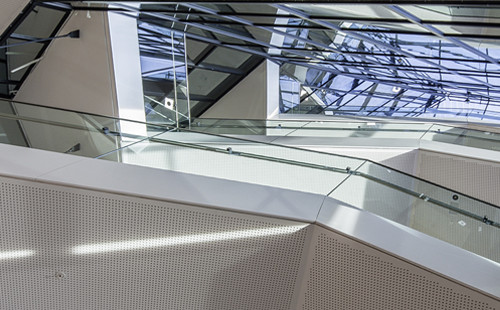Serbia - a magnet attracting investment from East & West
Serbia - a magnet attracting investment from East & West
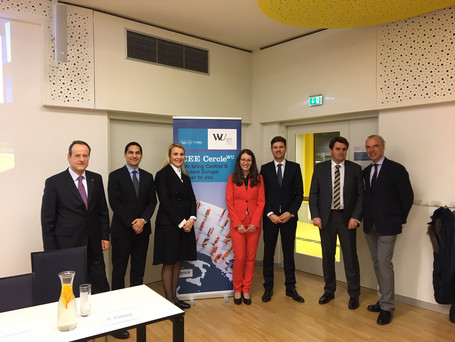
Serbia has become the leading investment target in the Western Balkans in the last 10 years. What is even more remarkable is the diversity of players: while the majority of the FDI stock is still held by investors from the EU, firms from Russia, China and the Middle East have gained attention with prominent investments, construction and infrastructure projects in the last years. A skilled workforce at low cost, a favorable geographic position, and a positive economic dynamic have been the main arguments put forward by foreign firms. However, an ongoing emigration and brain drain, a slowdown in reforms and a weakening business climate are raising concerns about a continuation of this successful development.
We have started this discussion with a short overview of the most important factors for Serbian attractiveness as an FDI destination. Jelena Cerar, program manager of our Center, has presented details, such as key economics facts, the most important industries and investors, FDI stock and inflows in the Western Balkan countries, Serbia’s role in Chinese Belt and Road initiative (BRI), Serbian labor force, problems to retain talent, taxes, free economic zones and changes regarding Ease of Doing Business. You can find the full presentation under the following link.
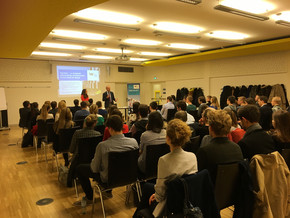
We further discussed this topic with our panelists:
-Marco Hernandez, Program Leader and Lead Economist for the Western Balkans, World Bank
-Nada Knezevic, Director, Chamber of Commerce & Industry of Serbia in Austria
-Konstantin Bekos, Regional Manager SEE, WKO
-Filip Conic, Senior Project Manager, Roland Berger
-Dietmar Reindl, COO, Immofinanz AG
We have provided for you a short summary of the most interesting questions and answers.
What are the main types of investors in Serbia, their focus industries and underlying drivers for the investment?
Conic (Roland Berger): The investors’ landscape has been involving compared to 10 years ago. Overall, I would divide them in 3 groups based on the underlying rationale for their investments:
- Large/mid-sized manufacturing companies, which go international, and try to thereby save on labor and /or operational costs. The automotive industry has benefited most from FDI, followed by construction and textile industries alongside food / agriculture. Historically, most investors are stemming from the Western economies.
- "Mega deals", with a tendency to stick to agreements and privatize SOEs. We can see that bilateral agreements are preferred option, especially in case of investors from Russia and the Middle East and partly in case of China. Although there was recently an increase in investment activity from Chinese investors, it is interesting that this is mainly not FDI but rather loans that Serbia takes from Chinese banks with low interest rates and / or long repay period. The focus of investment lies on utilities, mining and large manufacturing facilities.
- Private equity investors represent still the smallest yet increasing investors group. They are often coming from CEE countries, looking for investments in SEE/Western Balkans and are attracted by the expanding market opportunities and not necessary in the effort to save costs.
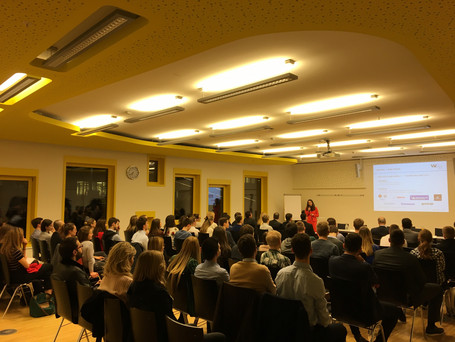
Why did Immofinanz decide to open shopping centers in Serbia and not in some other country in the Western Balkans? What is in your opinion Serbia’s biggest competitive advantage for the investment?
Reindl (Immofinanz): Since 2002, we have opened 10 retail parks, which are mainly smaller shopping centers. Our main reason was a big undersupply of value for money and discount stores. We have also decided to go to small cities, where there is not much competition. We chose Serbia first because I believe that it has bigger potential than Croatia and its culture fits well to Austrian in terms of values and the way of life.
Our total investment in Serbia is bigger than the total FDI stock of China in Serbia. However, Immofinanz is now very careful after massive investments from China. They invest mainly in infrastructure and mainly in Belgrade. I believe that in the long run their investment might not be that positive for Serbia as they make the country dependent on them.
Serbia increasingly appears as a central hub in the Balkans for the Chinese-led "Belt and Road Initiative", both at an infrastructural and a political level. How do you see that this partnership is going to develop in the future and what effect will it have on other countries’ investments?
Knezevic (Serbian Chamber):
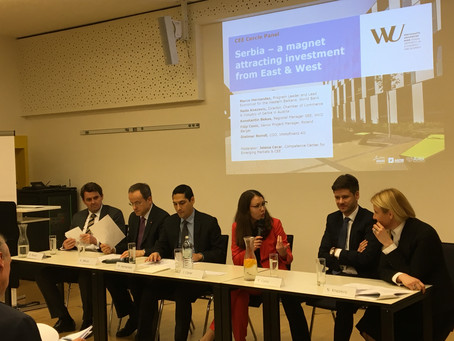
What are the main challenges and opportunities for Serbia to promote private investment?
Hernandez (World Bank): In my opinion, the top goals for all WB countries is to reduce poverty and share prosperity. I believe that the investment should translate into jobs.
Serbia has done a lot – it changed its business environment and stabilized the macro economy. It is now in the process of moving from a closed to an open market, but the reform pace is slowing down. They have a big agenda ahead: to improve the ease of doing business, “break with the past” and improve business climate for SMEs and micro firms. In addition to investment in productive assets, they have to invest in the “soft side”, i.e. human capital. They have to “reinvent” their economy”, since access to digital economy needs skills. Besides big stock of labor capacity, people leave Serbia, since they cannot find an adequate job and because of low salaries.
The EU accession is a once in lifetime opportunity for reforms: Serbia need to make a serious commitment to it and make big improvements in rule of law and ease DB area.
Rather than opening new companies, Austrian, German and Scandinavian companies mainly enter “strategic supply agreements” (transfer of skills accompanied by finance and machinery). They finally acquire majority of shares in companies, while skipping start-up costs. Do you think that this trend will continue in the future and can we expect more green-field investments from Austrian companies in the future?
Bekos (WKO): I do expect more greenfield investments, and mainly bigger ones. The main motives for Austrian investors are labor shortage in Austria, especially in the IT field, where Serbia has good resources. Especially with the introduction of Austrian and German dual education systems and training on the job, Serbia might fit Austrian needs even better in the future. Our WKO annual survey shows that the feedback from Austrian investors in Serbia is very positive. However, where they still see a space for bigger improvements are rule of law, bureaucracy and corruption.
What is the most common type of consultancy that investors ask when they enter Serbian market (and Western Balkans in general)?
Conic (Roland Berger): We often start with an outside-in market study and continue our support via commercial due diligence, provided the investor is eyeing a concrete target company. Moreover, we are increasingly seeing a trend of relocation of manufacturing facilities towards Western Balkans. Here we are helping investors to select a preferred country / a region within the country / or even to choose a concrete manufacturing site for which we then develop a business case. We are also supporting foreign companies acting in Serbia / Western Balkans on a range of topics ranging from strategy development and digitization initiatives over reorganization to cost cutting and restructuring measures
